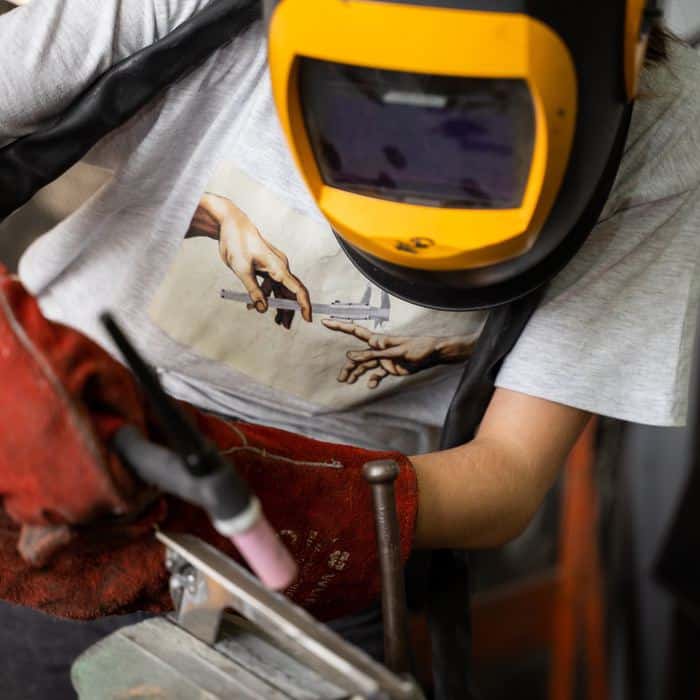Engineering & Fabrication Apprenticeships
We love what we do and would encourage any young person to consider Steel Fabrication as a career.
To become a stainless steel fabricator in Australia with a MEGT apprenticeship in Cert 3 Engineering and Fabrication, you will need to follow these steps:
- Find a company that offers a stainless steel fabrication apprenticeship program. You can search for available positions on job websites, local newspapers, or through your network.
- Apply for the apprenticeship program and go through the selection process. This will typically involve an interview and possibly some aptitude or skills tests.
- Once you are accepted into the program, you will start your apprenticeship and begin learning the skills necessary to become a stainless steel fabricator. You will work alongside experienced tradespeople and attend training sessions to gain knowledge of the materials, tools, and techniques used in stainless steel fabrication.
- During your apprenticeship, you will need to complete on-the-job training and off-the-job training. The on-the-job training involves learning the practical aspects of the job by working with experienced fabricators. The off-the-job training involves attending classes, workshops, and seminars to learn the theoretical aspects of the job.
- Once you have completed your apprenticeship, you will receive a nationally recognized qualification in Cert 3 Engineering and Fabrication. This qualification will certify that you have the necessary skills and knowledge to work as a stainless steel fabricator in Australia.
- With your qualification in hand, you can start applying for jobs as a stainless steel fabricator. Your apprenticeship will have given you valuable experience, and you will have learned the necessary skills and knowledge to succeed in this field.

What is a Cert 3 Fabrication Apprenticeship?
Certificate III in Engineering and Fabrication is a nationally recognized qualification in Australia that is designed for individuals who want to gain knowledge and skills in the field of metal engineering and fabrication. This certificate is offered through various registered training organisations (RTOs) and covers a broad range of topics related to metal fabrication.
The course typically takes around 2-3 years to complete and involves a combination of on-the-job training and off-the-job training. The on-the-job training involves working in a real-world setting and learning the practical aspects of metal fabrication, while the off-the-job training involves attending classes, workshops, and seminars to learn the theoretical aspects of the job.
During the course, students learn a variety of skills, including:
- Using hand and power tools to shape and form metal
- Reading and interpreting technical drawings and specifications
- Operating metal cutting and bending equipment
- Welding and soldering techniques
- Understanding metallurgy and materials science
- Applying quality control measures and workplace health and safety standards
Upon completion of the Certificate III in Engineering and Fabrication, graduates will have the skills and knowledge necessary to work in a range of roles in the metal engineering and fabrication industry. These may include roles such as metal fabricator, welder, boilermaker, or sheet metal worker. Graduates may also choose to pursue further education or training in a related field to advance their career prospects.
